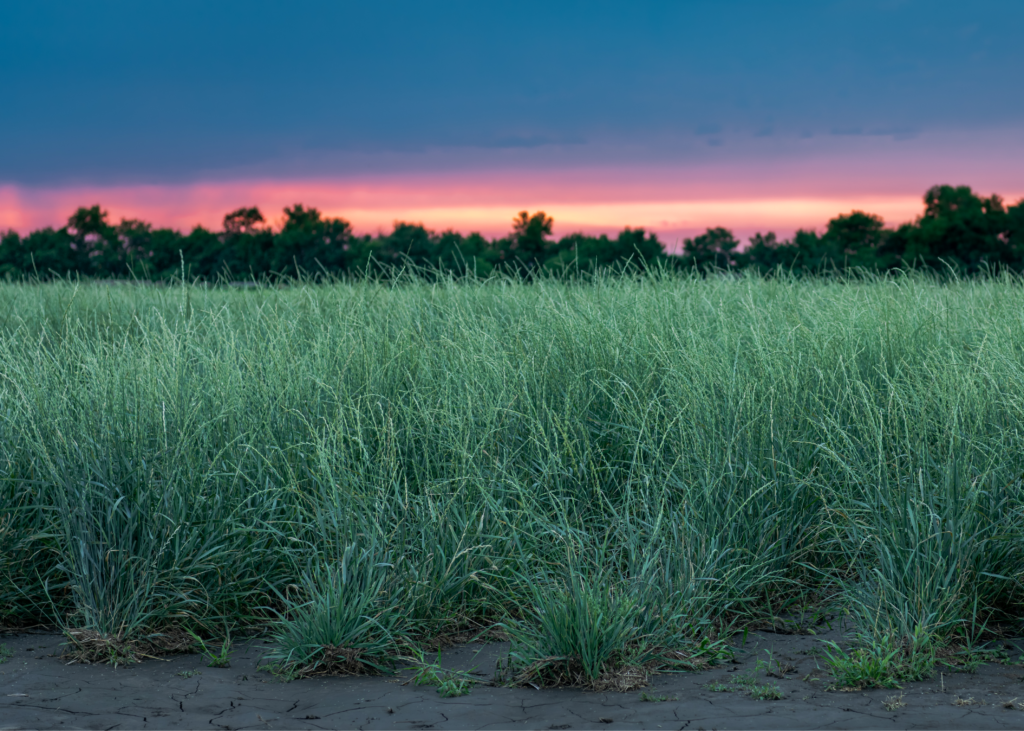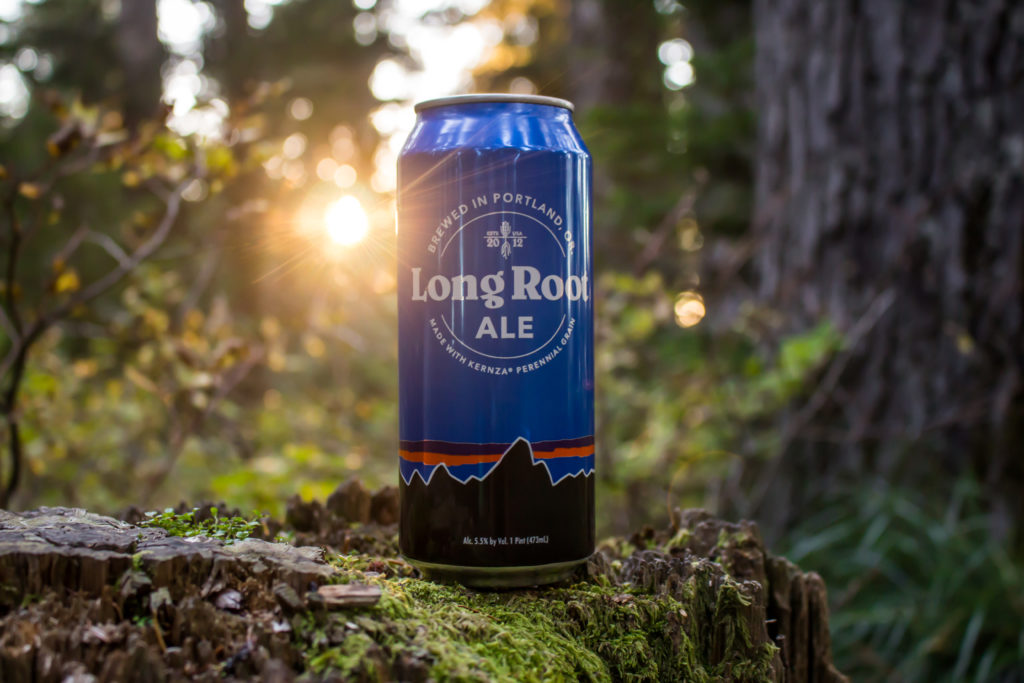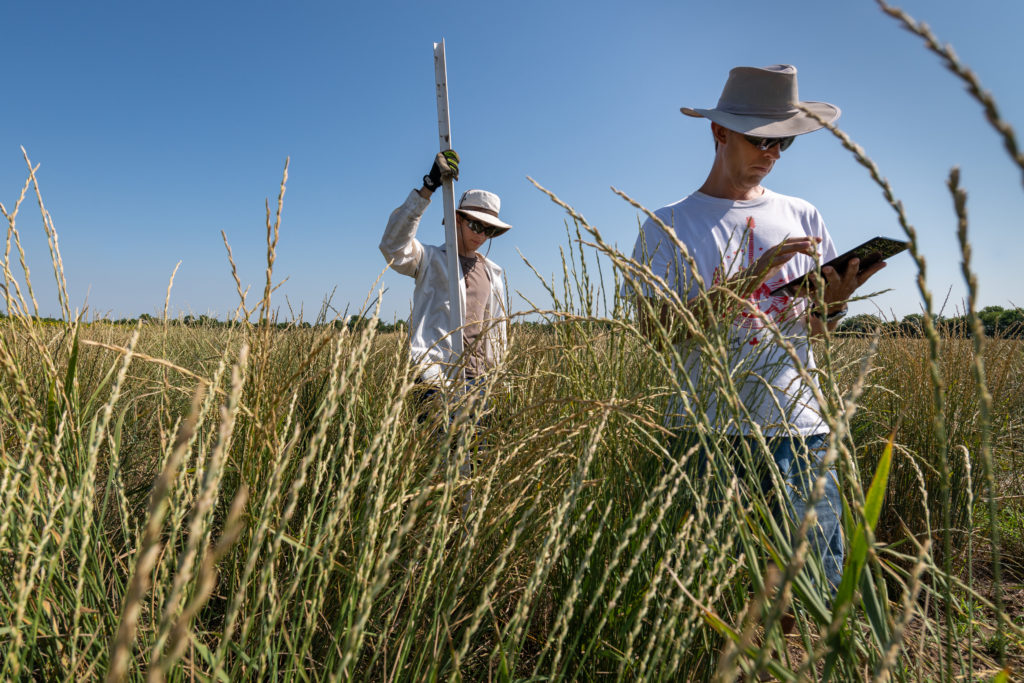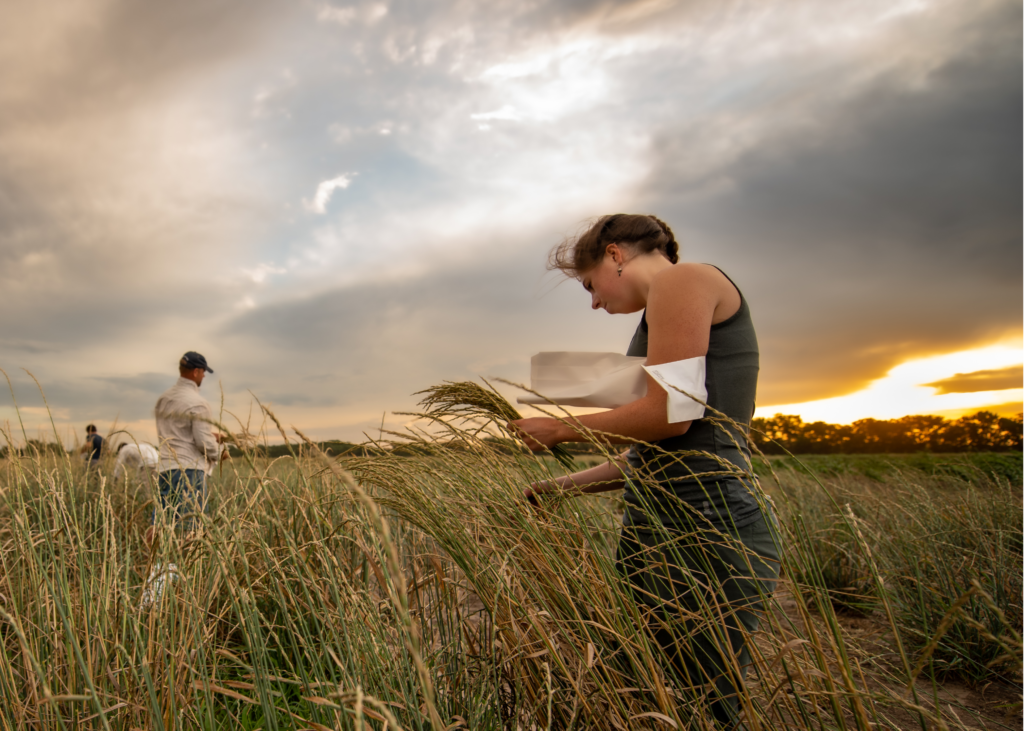Last updated on February 13th, 2024

Think about the foods and beverages you consume every day. Perhaps you start the morning off with a bowl of cereal, have a sandwich or salad for lunch and a big bowl of spaghetti and meatballs for dinner – capped off by a cold, refreshing beer. The grains, vegetables and meats that are used to produce these foods all have a carbon footprint. According to the US Environmental Protection Agency, agricultural lands are responsible for just under 10% of U.S. greenhouse gas emissions.
Now let’s focus on that cold beer you’re holding in your hand. In addition to the carbon generated by growing the crops needed to make beer, producing, packaging, shipping and selling the product also generates carbon. The State of Oregon estimated that beer consumption in just the Beaver State generates more than 200,000 metric tons of carbon dioxide a year – the same amount emitted by 42,800 vehicles.
There are a lot of things that can be done to make beer more sustainable, from more energy efficient manufacturing and shipping to improved crop management. However, one innovative partnership on the West Coast decided to get to the very root of the problem – and the results taste great.
What is a climate-friendly beer?

I don’t claim to be an expert on rating and reviewing beer. I know I’m not a fan of pale ales, but I enjoy a witbier after a bike ride on a warm summer day. I’ll drink any stout you put in front of me, and one can often find a hearty Belgian-style ale in my refrigerator. I even make my own beer on occasion, with decent enough results. I also have the good fortune to live in Portland, Oregon – a mecca for the craft brewing industry.
I like trying interesting beers produced by the countless craft breweries that have popped up around the country. The proliferation of beer flavors and styles over the last few decades has been astounding. When I read that Patagonia Provisions partnered with Portland’s Hopworks Urban Brewery and The Land Institute to create climate-friendly beer, I was intrigued – both professionally and as a beer lover.
My professional interest in this product is rooted in my role as the project manager for U.S. Nature4Climate – a coalition of 10 environmental NGOs and organizations dedicated to sustainable agriculture, forestry and business practices that are working together to ensure our forests, farms, ranches, grasslands and wetlands are an important part of our strategy to combat climate change.
Part of my job is to identify and share “solutions in action” – case studies that highlight innovative and practical actions that farmers, forest owners, corporations and non-profit organizations have taken that can serve as examples for future climate action. Simply put, we want to tell the stories of those who have developed more climate-friendly ways to grow crops, plant trees, protect land – and make beer.
The simple fact is that ours is a beer-loving nation. According to the National Beer Wholesalers Association, the average American over 21 drank nearly 26 gallons of beer in 2019. Figuring out how to make beer in a more sustainable way has the potential to have a meaningful impact on climate change. Moreover, a successful climate-friendly beer could help spur the development of other climate-friendly products, like bread and cereal. There is growing demand in this realm -for example, food producer General Mills, has pledged to reduce its greenhouse gas emissions by 30% and advance regenerative farming techniques on 1 million acres of farmland by 2030.
How can beer help the environment?

The partnership between Patagonia Provisions, Hopworks and The Land Institute has produced two new beers, called “Long Root Pale Ale” and “Long Root Wit.” Both beers are made using a long-rooted perennial grain called Kernza that uses less water, requires less tilling, prevents soil erosion and stores more carbon in the ground than conventional grains. “The ecological promises of perennial grains are robust,” explains Rachel Stroer, the Acting President of The Land Institute. “This new technology, perenniality, represents the closest grain agriculture can come to functioning like natural ecosystems and our best shot, in my opinion, at sustaining human life on this planet for generations to come.”
According to the CarbonShot report recently released by the World Resources Institute (WRI), enhancing the root systems of major U.S. crops to add carbon to the soil at the same rate as perennial grasses has the potential to improve soil quality and reduce erosion of valuable topsoil. If widely adopted, this practice would sequester up to 185 million tons of carbon dioxide a year. That’s equivalent to removing more than 36 million cars off the road for a year.
However, implementing this climate solution at a large scale will require extensive work. WRI’s report classed enhanced root crops as a “speculative bet,” meaning that significant investment in overcoming technical and economic barriers is necessary before this solution can be counted on to sequester game-changing amounts of CO2. As noted in the report, widespread use of enhanced crops will require advancements in breeding processes that produce consistent crop yields on par with what conventional crops are able to produce, while also maintaining flavor and other characteristics that consumers expect.
“More investment is needed for research and development to better understand the feasible potential of this approach and expand efforts to other crop species, and then to accelerate development of those that provide climate benefits,” explains Katie Lebling, an Associate with WRI’s Climate Program.
The creation of “Long Root” beer shows that this research and development process is already underway. The Land Institute and numerous research collaborators (including my alma mater, the University of Wisconsin-Madison) have spent nearly two decades developing the Kernza grain. Now that the research team has developed the grain, they are working with restaurants, bakeries and breweries to integrate Kernza into food and beverages. “Thanks in part to the tenacity of our donor base and our scientists, employees, and partners, we’ve really proven that this idea that we can have high-yielding grain crops with deep perennial root systems that sequester carbon and steward water is biologically possible, notes The Land Institute’s Rachel Stroer. “And now we see our first perennial grain crops on the landscape in production and on plates.”
Why are partnerships like this important?

Transforming a climate-friendly crop like Kernza into everyday consumer products requires strong partnerships with companies dedicated to developing more sustainable foods. Patagonia Provisions and Hopworks Urban Brewery recognized the potential to leverage beer’s popularity to demonstrate practical and scalable uses for the crop. As Birgit Cameron, the head of Patagonia Provisions notes:
“Beer holds a critical role in society and history. It is the center of many tables, uniting us with its common language. With its wonderful tradition and history of bringing people together, Patagonia Provisions saw an opportunity to use such a widely influential product to tell the story of regenerative organic agriculture, via Kernza, to a wide swath of people with a product we can all enjoy and get behind. All it takes is a small tweak in the way we make our beer to effect big change – we are hoping this message reaches the big brewers of the world.”
Christian Ettinger, the Founder & Brewmaster of Hopworks Urban Brewery hopes that the introduction of products like “Long Root” beer can help encourage greater focus on sustainable solutions to climate change and other environmental problems.

“We’re constantly working to brew more sustainably, whether it’s reducing and treating wastewater, partnering with Patagonia Provisions and The Land Institute, or supporting our local nonprofit partners focused on the environment! What better way to inspire grassroots change than through a discussion over beer! Beer’s job is to get people together and we hope the Long Root beers will inspire many fun discussions over the campfire.”
But how does the beer taste?
Simply put, Long Root Wit was a delicious beer – it was light, refreshing, and hit the spot after a long autumn bike ride. If you poured me a glass of it without telling me that the beer was made using Kernza, I never would have known. There were no awkward flavor notes that would suggest that I was drinking something “different.” This beer shows that you can make a climate-friendly beer without sacrificing flavor. If that’s not a climate solution in action, I don’t know what is.
Nathan Henry is the Project Manager for U.S. Nature4Climate.
